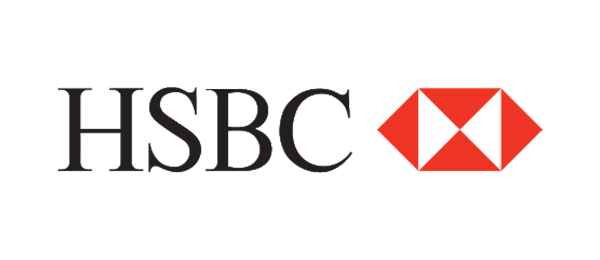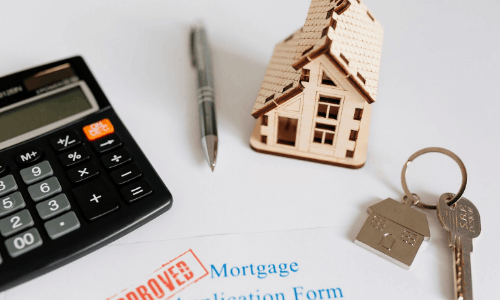- What is Reverse Mortgage?
- How Does Reverse Mortgage Work?
- Ways to Access Reverse Mortgage Loan Amount
- Eligible Criteria for Reverse Mortgage
- Who Has the Ownership of the House?
- Loan Amounts and Reverse Mortgage Interest Rates Today
- Reverse Mortgage Costs
- Will Your Heirs Inherit Your Reverse Mortgage Loan?
- Can Family Members Take Over the Mortgage?
- When Are You Required to Repay Your Reverse Mortgage?
- Reverse Mortgage & Is It for You?
- Key Takeaways
Reverse Mortgage Loan
Best Home Loans to buy your dream home
Expert retirement planning often takes all the crucial factors into consideration including the life expectancy of the individual concerned as well as the inflation rate. However, even the most strategic plans may fall short of the requirements at times. A reverse mortgage serves as a fall back option in such scenarios.
It is a loan taken against a property owned by the borrower and can be used to cover any type of financial requirement at hand. This article will cover all the important aspects related to reverse mortgages like how this type of mortgage works and its pitfalls to help you make an informed decision.
What is Reverse Mortgage?
A reverse mortgage loan can be understood as the polar opposite of a traditional mortgage loan. In a traditional loan, the borrower receives funds to purchase a property and is required to repay this amount over time.
In a reverse mortgage loan, on the other hand, the borrower gets the loan against a property that they already own. The amount received as a reverse mortgage loan can be used to cover any expenses at hand, similar to personal loans. This includes everything from special one-time expenses like medical treatment costs or general recurring expenses like utility bills.
Most reverse mortgages are issued by government-regulated channels. However, one can also find some private non-bank lenders which may offer these products.
How Does Reverse Mortgage Work?
In a reverse mortgage, a homeowner in the UAE approaches the lender to get a loan against the value of their property. The borrower's homeowner leaves their house as collateral for the loan. Once the loan terms have been finalised, the lender sets up a payment plan for the borrower.
The borrower can choose how to receive their loan amount (lump sum, monthly instalments, or combination). Borrowers can also choose to repay their reverse mortgage loan using a monthly payment plan.
In case the reverse mortgage amount is not paid, the lender has the authority to sell the collateral property and keep the proceeds to cover the due reverse mortgage loan amount. The collateral property can be sold if the owner (i.e., the borrower) either meets their demise or chooses to sell it and move out of the UAE or to a different home.
Ways to Access Reverse Mortgage Loan Amount
There are primarily three ways to access your reverse mortgage loan amount:
- Line of Credit: You can arrange for the lender to pay you monthly instalments of the loan. Here, you can select the instalment amount and have the lender spread out the total loan amount over a certain period.
- Lump Sum: You can also opt to receive the complete loan amount as a lump sum
- Combination: A certain part of the loan amount can be paid to you upfront as a lump sum and the rest can be divided into monthly instalments.
Eligible Criteria for Reverse Mortgage
Lenders in the UAE usually offer a reverse mortgage to senior citizens who are over the age of 62 years and own a house. If there is more than one owner of the house, the youngest owner must be at least 60 years old to be considered eligible.
Listed below are the eligibility criteria for a reverse mortgage for borrowers:
- The borrowers must be at least 62 years old to apply for a reverse mortgage loan
- If multiple owners of the house are to be included, the youngest owner must be at least 60 years old
- All homeowners clearing the above-mentioned criteria are eligible
Additional eligibility requirements may apply as per the lender’s individual policies.
Who Has the Ownership of the House?
The ownership of the house used as collateral for a reverse mortgage remains with the borrowers for the time being. However, the borrowers are required to submit the property documents to the lender. The legal rights to sell the property are transferred from the borrowers to the lenders if the loan amount is not paid off using the traditional monthly instalment or lump sum payment methods.
It’s highly important to note, however, that the collateral can only be sold if the owner-borrower moves out or meets their demise. As long as the borrower resides in their house, the lender cannot sell it to cover the loan amount.
Loan Amounts and Reverse Mortgage Interest Rates Today
The loan amount offered for a reverse mortgage generally depends on the current value or equity of your property. Most lenders offer up to 60% of the property value as a reverse mortgage amount, although the loan amount offered to each borrower also differs as per the borrower’s age.
As far as reverse mortgage interest rates are concerned, most lenders in the UAE offer variable rates for their reverse mortgage products. This comes with variating EIBOR + margin rates of the bank.
Reverse Mortgage Costs
A few different fees and charges apply for reverse mortgage loan plans –
1. Mortgage Insurance: Mortgage insurance premiums are expenses that you can generally avoid with traditional mortgage plans. Insurance premiums are not mandatory if you pay more than 20% of the loan amount as a down payment. Since a down payment is not required with reverse mortgage loans, mortgage insurance premiums become a mandatory fee.
The important thing to note here is the amount of premium that you will be paying. For loan amounts lower than 60% of the property’s value, mortgage insurance premiums are charged at 0.5% of the loan amount. For loan amounts higher than 60% of the value of the property, the mortgage premium can shoot up to 2.5% of the loan amount.
2. Service Fee: A service fee of AED 30 to AED 35 is charged every month with reverse mortgage plans. Although a monthly charge, your lender calculates the total service fee at the beginning of the loan term.
These calculations are done as per your life expectancy. So if the applicant is expected to live for the next 15 years, the lender will calculate the service fee for the loan accordingly. The total service fee is deducted from the loan amount you will receive for your reverse mortgage.
3. Other Fee: Some other fees like origination fees and third-party fees may also be applicable with reverse mortgage loans. As banks often use third-party agencies to handle tasks like property valuation and inspection, a fee is applicable for getting these tasks covered as well.
Will Your Heirs Inherit Your Reverse Mortgage Loan?
Generally, the bank sells off the house put as collateral to cover the loan amount due for a reverse mortgage loan after the demise of the borrowers. Heirs of the borrowers do not necessarily have to take over the mortgage repayment responsibilities for their parent’s loan amount. However, if they are to inherit the property kept as collateral and wish to retain it, heirs would need to take on the mortgage and pay it in full to keep the house from getting sold.
Can Family Members Take Over the Mortgage?
As a standard rule, your family cannot take on your reverse mortgage. If there is an heir to the home that you have put as collateral, they can pay off the due loan amount on your mortgage after your demise and take over the ownership of the house. However, your spouse or any other member of the family cannot take over the mortgage plan upon your demise.
When Are You Required to Repay Your Reverse Mortgage?
As mentioned earlier, most reverse mortgages are not required to be repaid. There are only a handful of situations when your reverse mortgage loan will be required to be paid in full with cash. Let’s cover them:
- If you move from your primary residence to an assisted living facility or a family member’s home
- In case you wish to pass down your home to your heirs and have a certain cash value to pay off the reverse mortgage
- If you have stayed at a secondary residence for more than one year
Some Facts about Reverse Mortgage
Let’s cover some interesting facts about the reverse mortgage that every potential borrower must know:
- The home that you have put down as collateral shall remain to be your primary residence for as long as you wish to continue the mortgage.
- A reverse mortgage does not come with a loan tenure. This means that the loan amount taken by the borrower may exceed the value of the property at a certain point. In such a case, the lender uses the mortgage insurance premium paid by the borrower to cover the loss they are facing in terms of the loan amount recovery after the borrower’s death.
- While refinancing your reverse mortgage is possible, all the applicable fees you have paid previously will apply during refinancing as well.
- Refinancing of a reverse mortgage can be used to add your spouse to the loan plan as well.
- Refinancing a traditional mortgage, cutting down expenses, and downsizing to a smaller home are some alternatives to reverse mortgages.
- Borrowers must stay on top of all tax payments for their property, if applicable, and cover all necessary fees to avoid foreclosure of the loan.
Reverse Mortgage & Is It for You?
If you belong to any of the mentioned categories, getting a reverse mortgage might be a good idea for you:
- Senior citizens over the age of 62 encountering significant expenses late in their lives
- Senior citizens who have exhausted most of their savings or retirement funds and now require a steady source of income
- Senior citizens living in a home with substantial equity
- Individuals who don’t have any heirs to inherit their homes
It is typically smart to avoid reverse mortgage loans if you still have savings you can tap into. This can be an old savings account, a forgotten investment you made, or whole life insurance plans. If you cannot find the best reverse mortgage lender for your requirements, ideally backed by the government, you can drop the plan completely. A reverse mortgage shall also be avoided if you have heirs who would like to inherit your home one day.
Key Takeaways
- A reverse mortgage is the opposite of a traditional mortgage. Here, you receive a loan amount by keeping a property you own as collateral and converting the equity of your home into regular payments.
- Senior citizens older than 62 years are eligible to take out a reverse mortgage in UAE.
- This mortgage option is a great option for seniors left limited to no retirement funds, don’t have heirs, or have a high equity value property.
- Reverse mortgage costs are high. Moreover, as these costs are added to the loan itself, they may compound to a higher amount after a while.
- Lenders have the primary right on the collateral property kept by the borrower. If an heir wants to keep the property, they shall pay the due loan amount in full first.
- You can use an online reverse mortgage calculator to find out the estimated interest amount you will be paying over time.
- It is essential to get your reverse mortgage from a trustworthy lender and have proper counselling before you make a decision. Learn about all the visible and hidden fees that come with taking out a reverse mortgage on your home.
More From Home Loans
- Recent Articles
- Popular Articles

































